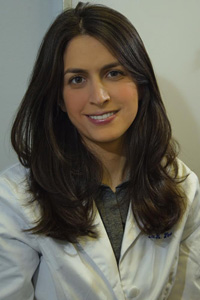As an herbalist I see how herbs help people and I love herbs. I have seen people feel better from something as simple and as a common cold to cancer patients having fewer signs and symptoms from chemo treatments. And I see how each herb is fascinating in its own way; it has different properties, different tastes and temperatures. It occurred to me that food might offer a similar array of benefits that herbs in traditional Chinese Medicine regimens do. As I researched this hunch, I found my way to the practice of Functional Medicine.

According to the Functional Medicine mission statement, “Functional Medicine is a personalized, systems-oriented model that empowers patients and practitioners to achieve the highest expression of health by working in collaboration to address the underlying causes of disease.” One of the main ways Functional Medicine deals with the underlying cause of disease is with food and supplements. I started taking classes through the Pacific College of Oriental Medicine that illustrated the connections between Chinese Medicine and Functional Medicine. The classes made me realize that the two areas of medicine share the same basic principles.
Both Chinese Medicine and Functional medicine emphasize the need to find the root of the disease instead of treating symptoms only. Chinese Medicine uses acupuncture and tai chi to promote the flow of qi (energy) in the channel, as well as herbs and diet, to help prolong the treatment. Functional Medicine uses diet and lifestyle changes to treat a patient. The two medical traditions do take different approaches to diagnostics. Whereas Chinese Medicine uses non-invasive ways to diagnose patients, such as looking at a patient’s tongue and feeling their pulse, Functional Medicine uses more invasive techniques, such as blood and fluid samples. Yet, more often than not Chinese Medicine and Functional Medicine treat their patients similarly. Although both Chinese and Functional medicine typically take longer than Western medicine to demonstrate the results, both often leave patients with longer-lasting outcomes.
By way of illustration, take the example of headache treatments in Chinese Medicine and Functional Medicine, respectively. In Chinese Medicine headaches are sometimes connected to liver qi dysfunctions. This does not mean anything is wrong with your actual liver. In order to fully understand this concept you cannot think in Western terms, and instead we have to think of the liver channel and liver qi. Liver qi rising, liver qi stagnation, and liver blood deficiencies are all possible reasons for headaches. A Chinese Medicine practitioner would administer a point prescription and then find the appropriate formula. The formula would include herbs to help with liver qi and blood. In recent years these herbs have been scientifically proven to help with the liver. For example Dang Gui (Angelica root) is a blood tonifing herb. It is also a hematopoietic herb that works on red blood cells. However, 4,000 years ago when the herb was first used, all practitioners knew was that it helped blood. We know now it is because it contains iron and B-12 as well as thiamine, deficiencies of which cause liver disease (Bensky 750-754).
Whereas Chinese Medicine places great emphasis on herbs and thousands-year old tradition, Functional Medicine incorporates more Western science. In Functional Medicine the diagnosis of headaches would be a little more scientific, but would arrive at similar conclusions and treatment plans. A Functional Medical practitioner can correlate headaches with digestion and the liver’s role in digestion. The liver is the key player in gluconeogenesis, which uses carbohydrates to control a person’s blood sugar. If the process of gluconeogenesis is faulty it can cause hypo or hyperglycemia, which can contribute to headaches. Assuming the patient eats regularly, in this case a Functional Medical practitioner would believe the patient isn’t absorbing their food properly, probably due to inflammation. The practitioner would set the patient on an anti-inflammatory diet, perhaps reducing or eliminating gluten, and would prescribe the patient supplements such as iron, B12, and maybe even thiamin.
Functional Medicine and Chinese Medicine end up treating the patient the same way, they just have different ways of coming to the same conclusion. Chinese Medicine’s channel theory, which serves as the foundation for many diagnoses and treatment plans, finds some skepticism among patients and doctors. Perhaps because Functional Medicine uses the scientific concepts that are more prolific in Western societies, patients seem more willing to listen and partake in the suggested treatment courses. Both are useful, both are needed, and both can help heal patients. Treatment plans that derive from both Functional and Chinese Medicine may provide the most robust toolsets for practitioners and gain the trust and buy-in from the widest array of patients possible, even if in many ways, both medical traditions are built on the same fundamental principles.
Work Citied
Bensky, D., & Gamble, A. (1993). Chinese herbal medicine: Materia medica (Rev. ed.). Seattle, Wash.: Eastland Press.
Dana Fine, L.Ac.
Editor In Chief
